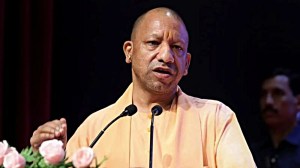Trade is a gender issue
When a new UN task force on globalisation and trade came into being on July 23 to focus on the impact of trade and trade policies on women, ...

When a new UN task force on globalisation and trade came into being on July 23 to focus on the impact of trade and trade policies on women, most mainstream media ignored this landmark initiative. The initiative was, however, of special interest to the members of the International Association for Feminist Economics (IAFFE) who had, at their conference in Barbados earlier, emphasised the need for greater attention to the gender dimension of globalisation and market liberalisation policies. IAFFE was born in 1993 when a group of women attending the annual meeting of the American Economic Association decided that conventional economic theories did not take into account gender perspectives, and that there was a need for a ‘feminist economics’ initiative. Today IAFFE boasts of a worldwide membership of several hundred academics and activists — men as well as women — from 50 countries. Nobel prize winning economist Amartya Sen is a member, and for its tenth anniversary last month IAFFE brought out a special issue of the journal Feminist Economics devoted entirely to “The gender perspective in Sen’s work and ideas”. It was Sen’s expose on the “missing millions of females” that drew world attention to skewed sex ratios.
Market liberalisation as urged by the World Bank/ IMF has led to cutbacks in social sector allocations in the budgets of many developing countries and increasing privatisation of health services. When treatment that used to be free at government hospitals gets replaced by medical services that have to be paid for, it is women who shoulder an extra burden, because they are the ones expected to care for the sick, infirm and elderly. So what does ‘privatisation’ do to the quality of women’s lives, especially among the lower income groups, even if globalisation means more ‘export earnings’?
Women do not get paid for the ‘care services’ that they provide. This ‘care economy’ does not feature anywhere in the reckoning of Gross Domestic Product (GDP) by economists and policy makers. GDP also gets inflated when the costs of the erosion of the quality of life for the poor, and the environmental destruction caused by rising industrialisation, are not taken into account in cost-benefit assessments from a purely economic perspective. Which is why IAFFE seeks to urge a more socially equitable, multi-disciplinary method of evaluation in deciding economic policy.
Sociologists have been discussing the issue of domestic violence. Feminists and lawyers have focused on inheritance laws that discriminate against daughters. The connection between these two phenomena showed up at one paper presentation during the Barbados conference, where a research study showed that the incidence of wife battering in India was 49 per cent among women who did not own property, and only 7 per cent among women who had house or land ownership. Not having anything to fall back on makes women vulnerable in a manner that is gender-specific. Women don’t need property rights merely for economic security, but also for protection from the threat of violence.
With the formation of the new UN task force, we now have official validation of the movement for greater gender sensitisation among economic policy makers, so that ‘progress’ in terms of trade does not leave women worse off, as casualties hit by the juggernaut of market liberalisation. A UN report released last week to mark the launching of the ‘Gender and Trade’ intra-agency task force headed by UNCTAD concedes that women are the source of inexpensive labour in export markets like clothing, footwear, electronic assembly and non-traditional agricultural exports, and that gender sensitisation has to be made a part of policy assessments, at the FAO, ILO, UN Environment Programme, the World Bank and the IMF, in association with the office of the UN High Commissioner for Human Rights. The realisation is now growing that none of these agencies can work independently of the agenda of the others.
IAFFE delegates at Barbados had pointed out that women’s voices found no place at international trade discussions, and that the world’s ‘‘deficit” was not merely in terms of trade figures but also in terms of gender equity. Hopefully now, with the launching of the gender and trade task force, there will be scope for a move towards greater social justice.
Photos


- 01
- 02
- 03
- 04
- 05





























